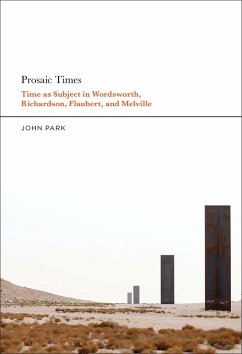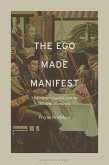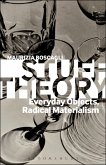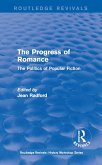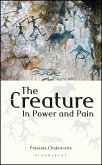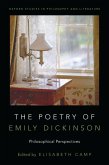Analyzing the stylistic innovations most characteristic in pivotal works of literary realism, Prosaic Times shows how their styles are not merely ornamental but fundamental to building their own temporalities.
By capturing the temporal dimensions in Wordsworth's The Prelude, Richardson's Clarissa, Flaubert's "Un Coeur Simple," and Melville's Moby Dick, John Park argues that these literary works of realism - the artistic claim to represent life as it is - do not necessarily depend upon the plotline of the story they tell. The reduced significance placed on plot is counterbalanced by something else: an experience of duration, a sheer extension of time in reading, a sense of time stemming from the unique stylistic innovations in each work.
Contrasting with the view that realism represents social conditions, this book claims that while realist works represent society, they themselves are not bound to social conditions. Instead, literary realism accounts for ways of configuring history that render social conditions understandable. The active quality of language, of what narrative discourse says and does in forming our understanding of real things and events, is brought directly to the reader's attention in these works.
Through close readings that analyze, among other things, the natural objects and scenes of experience; dense, temporal overlapping of accounts; the depiction of the quotidian ways of a village; and the boundless occasion for "timeless" metaphysical reflections, Park shows how narration not only "takes" time, but ultimately makes time part of the experience it represents to the reader.
By capturing the temporal dimensions in Wordsworth's The Prelude, Richardson's Clarissa, Flaubert's "Un Coeur Simple," and Melville's Moby Dick, John Park argues that these literary works of realism - the artistic claim to represent life as it is - do not necessarily depend upon the plotline of the story they tell. The reduced significance placed on plot is counterbalanced by something else: an experience of duration, a sheer extension of time in reading, a sense of time stemming from the unique stylistic innovations in each work.
Contrasting with the view that realism represents social conditions, this book claims that while realist works represent society, they themselves are not bound to social conditions. Instead, literary realism accounts for ways of configuring history that render social conditions understandable. The active quality of language, of what narrative discourse says and does in forming our understanding of real things and events, is brought directly to the reader's attention in these works.
Through close readings that analyze, among other things, the natural objects and scenes of experience; dense, temporal overlapping of accounts; the depiction of the quotidian ways of a village; and the boundless occasion for "timeless" metaphysical reflections, Park shows how narration not only "takes" time, but ultimately makes time part of the experience it represents to the reader.

